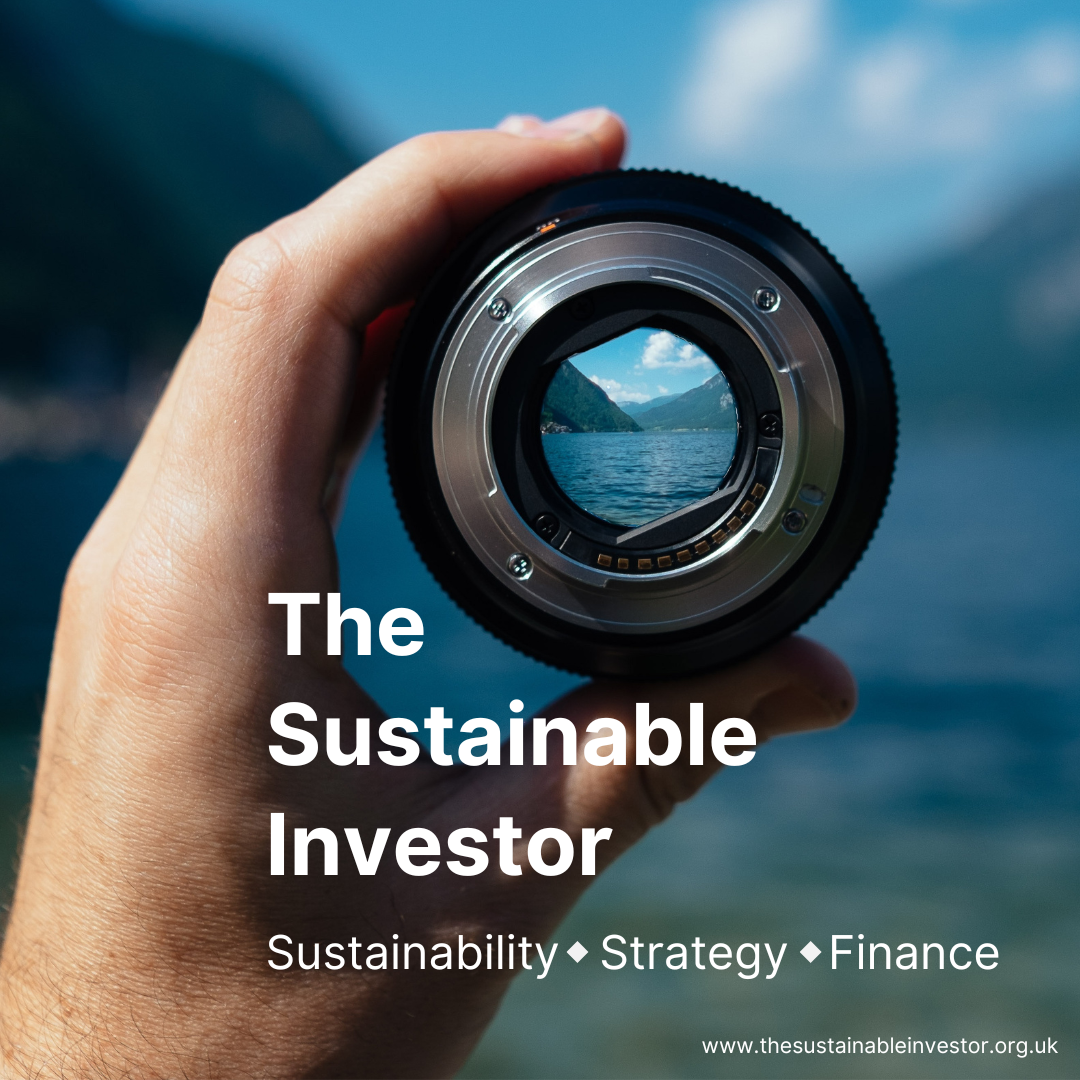
Sunday Brunch: traditional vs sustainable investors - are we really different?
We all need good disclosure. And this means something different from what you might think. Good disclosure helps both traditional and sustainable investors. So let's work together to deliver it.
Communication is a journey. The more that people have in common, the better the chance that they can take that journey together. John C Maxwell
The different types of investors are much more alike than you think.
All investors need good sustainability transition disclosure. This is different from ESG reporting. And it's different from Paris Alignment, and green house gas emissions reporting.
Instead it's all about the fundamental building blocks of how a company creates its strategy - focused on how they are responding (reactively or proactively) to the upcoming sustainability transitions. That sounds like good investing practice to me.
So what is good sustainability transition disclosure?
It's all about how well companies are preparing for the changes that are happening. What are their targets, what is their strategy for achieving them, what concrete actions and investments will they make, and how will these impact the financials of the company? And perhaps most importantly, how is their sustainability transition strategy aligned with the wider company strategy?
I am sure that all sustainability investors will say, yes, this is what we need. And I am equally sure that most traditional investors would agree as well. We might use that information differently, but we all have the same starting point.
Because while there may be differences, they are not as material as you might think.
And the image - that is Janus, the roman god. Sculptors often depicted him with two faces - looking in opposite directions.
If you want to read the rest and are not already a member...

Traditional vs sustainable investors - are we really different?
Unless you have been living under a rock, you will have seen and read the debates about ESG. On one side it's woke, bring politics into investing. And on the other, making investments more sustainable is fundamental to our long term 'success'. Putting people and planet first. And of course, between these we have all shades of grey.
Are these differences real? In some ways obviously yes, but we have argued before that sustainable investing is not as different as some people would have you believe.
Is there such a thing as ESG investing?

Yes, there are differences. A sustainable investor is likely to be more willing to invest in companies or projects that benefit society. And they may be more willing to accept lower financial returns to deliver these objectives - although this is less common than you might think.
But we also have lots of things in common.
What do we have in common ?
All investors have a view of how the future will look, and what factors will impact companies (directly and indirectly) as the transitions play out. And we understand that it's all a giant feedback loop. The impact companies have on the world feeds back via public opinion and regulation into impacts on the company.
And we use very similar investment appraisal processes. And while there are some differences around what factors we include in our appraisals, the gap is closing.
Many traditional investors understand that the sustainability transitions are going to happen. And given this, they need to make sure that the companies they are invested in are preparing for them.
Yes, we see arguments about when the transitions will happen. Many traditional investors I talk to think the change will be slower. Partly because change is hard and hence often slower than we expect (especially if it involves government inertia), partly because of the costs of the transition, and partly because the technologies are still not yet available at scale and at a price that most people can afford.
And many sustainable investors say 'yes, I accept these challenges, but through our investments we can make change happen faster'.
And yes, we still have some traditional investors who don't believe that the transitions will happen at all. But ex the political grandstanding, these are a smaller group than the press coverage might suggest.
Your views on the future and what factors are important will be different from mine. That is what makes a market. The future, and how to respond to it, is uncertain.
But one other thing binds us as well - and that is information.
All investors need companies to reveal how they think the world will change, the strategy they have for dealing with this, and the financial consequences of the choices they are making.
Companies do this all the time (sometimes well, sometimes not) for other strategic issues. Now we need them to do this for sustainability transition issues. And it's not just us arguing this. Most of the reporting and accounting organisations worldwide think this as well.
So, if you are a traditional value based investor, or a sustainability focused one, let's try to get better disclosure. And let's make sure it has meaning. And that it's useful.
The reality is shareholder sustainability disclosure requirements are shifting from a focus on net zero alignment and carbon emissions reduction targets (i.e. a high-level climate strategy), to one that includes better financial disclosure - encompassing the assumptions that underpin a company’s climate strategy, the concrete actions they plan to take, how well these are aligned with the wider company strategy, and the financial implications of the choices they are making.
Having high level company targets is no longer enough - and that applies to traditional as well as sustainable investors.

Something a little more bespoke?
Get in touch if there is a particular topic you would like us to write on. Just for you.
Contact us
Please read: important legal stuff.


